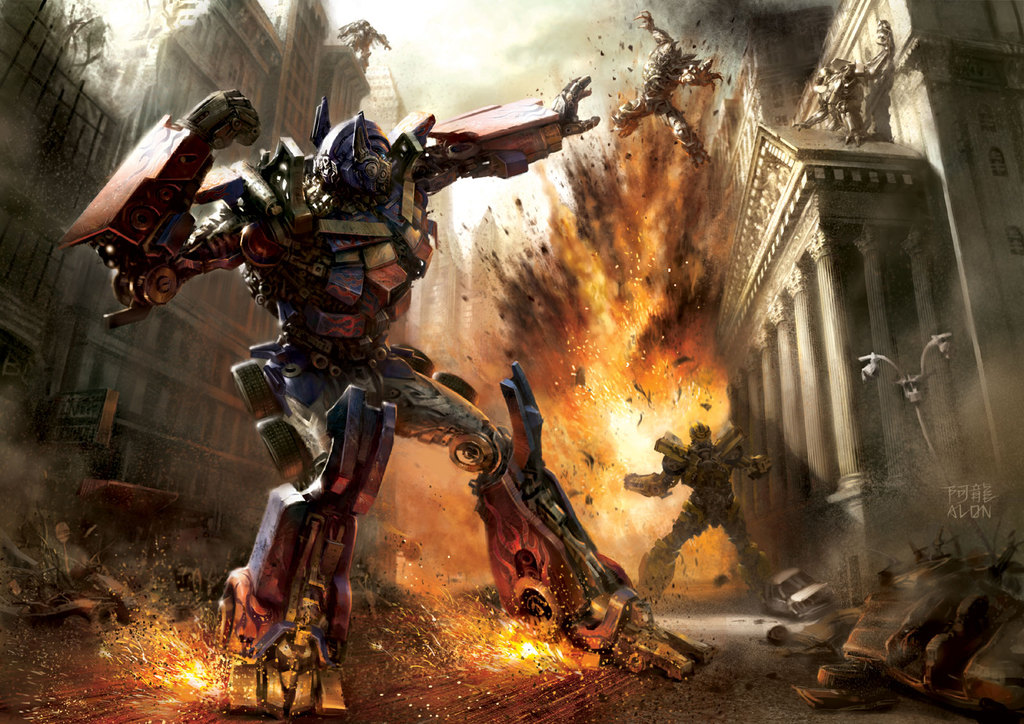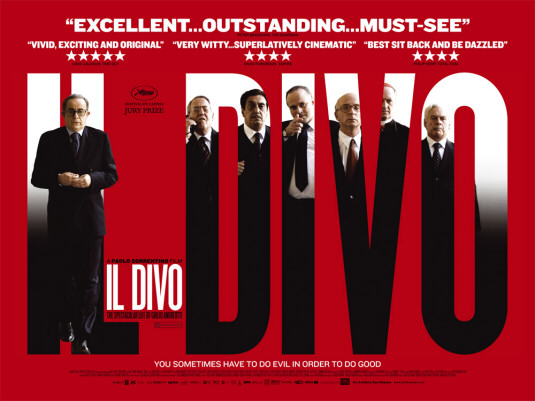 I had a dream the other night in which I was visited by my The Film Talk co-host Jett Loe as an old man –he didn’t seem to remember me; but he gave me a transcript of a statement which he asked me to read on the show. I duly complied, but demand for a text version of the statement has been so high that it seemed useful to publish it here. Apply some mournful music and you'll get the picture:
I had a dream the other night in which I was visited by my The Film Talk co-host Jett Loe as an old man –he didn’t seem to remember me; but he gave me a transcript of a statement which he asked me to read on the show. I duly complied, but demand for a text version of the statement has been so high that it seemed useful to publish it here. Apply some mournful music and you'll get the picture:
"No one would have believed in the first years of the 21st century that human affairs were being watched from the timeless mists of space. No one could have dreamed that we were being scrutinized as a scientist studies creatures that swarm and multiply in a drop of water. Few men even considered the possibility of life on other planets. And yet, across the gulf of space, minds immeasurably superior to ours regarded us with envious eyes and slowly, and surely drew their plans against us. [With deep thanks to Mr Wells]
It was in early summer 2009 that the tipping point was reached; an event so pure in its rage against the right of human beings to the pursuit of happiness that one would be churlish to deny its particular genius. The race had lived through moments of such fear and trembling in the past that its mavens did not at first fear the worst. After all, a culture that had endured the spectacle of ‘The Mummy Curse of the Dragon Emperor’, the films of Tony Scott, the willingness of whole populations to buy Tamagotchi virtual pets, and the appearance of Ricky Martin at President Bush’s first inaugural ball, could sustain any assault. Couldn’t it?
But that was before the virus.
It began during the last full week of June, when millions of people suddenly became detached from their otherwise sensible existences. In large groups, they marched as if drawn by the tune of a distant drum or piper, to their out of town shopping malls, their town centers long since hollowed out by the so-called ‘vision’ of the elite political cohort euphemistically named ‘developers’; they paid their eight bucks, bought their popcorn tonnage, were carried into the salons of death by forklift trucks, and waited.
And waited.
And waited.
It all seemed so safe and tranquil.
Had they only listened to the warnings.
Shadowy figures had recently emerged on the landscape; figures known only as ‘bloggers’ – as with any class of angels, some were fallen, and not only did they not see the danger, in fact they welcomed it, wide-eyed and ginger-bearded. It fell to a remnant to see clearly the doom to come. It has been difficult to determine just who these people were, but what surviving records we have indicate theirs was a pyramid structure; tribal chiefs with regal names such as Ebert, Kael, and Sarris gave way to younger avatars. One sect in particular – the TFTs – were known for their sacrificial attempts at saving their brothers and sisters. TFTs would allow themselves to be exposed to the horrors of the multiplex in the often vain hope that their visible scars would serve as harbinger enough to prevent others from suffering the same fate. TFTs were the true unsung heroes of this time; now known in mythology as the ‘Captain Jack Sparrow Forward Slash Orc Era’.
Nothing is known for certain of the TFTs after June 26th 2009, when the Fallen rose to infect the culture; it has been rumoured for decades that a couple of the TFTs simply disappeared; they donated what little property and money they had to the poor, and underwent an experimental procedure known as ‘soul-cleansing’: by which means a human could be liberated from their memories of awful movies. The unfortunate side effects included loss of other memories, but the benefits far outweighed the costs; TFTs may have escaped to caves on the Mexico-Texas border, where they remained in hiding til it seemed safe to emerge, fifty or sixty years later.
As for 2009, the T1N1 virus, known colloquially as ‘Robot Flu’ multiplied disproportionately after its introduction to the biosphere. Audiences across the world were captured within minutes, unable to move from their luxuriant deep seats, weighed down by popcorn buckets and dread; forced like Alex in ‘A Clockwork Orange’ to gaze upon such horrors as a tiny mechanical dog dry humping a girl’s leg, John Turturro’s naked rear end, twin robots whose ethnic stereotyping would have looked out of place in a black and white minstrel show, images so scorched it made some viewers afraid that the celluloid would spontaneously combust, and a woman portrayed as so plastically beautiful that she deserves a snake like tail to emerge from her buttocks.
The destruction of all extant human culture seemed inevitable. Within weeks of the release of ‘Transformers: Revenge of the Fallen’, most cities were full of zombies, people detached from their brains, their souls, and all rational thought. Some took to watching Michael Bay’s films repeatedly, in underground clubs, in the hope that re-traumatisation might somehow diminish the effect. It didn’t. Others took to the hills, creating liberal survivalist communities; members were only allowed to bring the writings of either Noam Chomsky or Kurt Vonnegut, and all the tofu they could pack in a hemp bag; but the hills revolted. Nature abhors a vacuum, and once it became clear that some of the liberals had already been infected by the virus, having tried to convince themselves that seeing the movie would be an experience of postmodern pastiche and therefore justifiable as the basis for an article in salon.com, the trees emitted a poisonous sap that expelled the desperate. Those who were not zombies or the now displaced liberal survivalists did the only thing that seemed possible in their circumstances. They took up World of Warcraft, which, of course, means that they were dead already.
And then, destruction.
It appears that the aliens from James Cameron’s ‘The Abyss’ had been waiting for just such a moment – a moment when they could justify ending the human race. They had looked for a reason to ignore the earth; and indeed, for several thousand years, human beings had proven themselves capable of a myriad of miracles: freedom struggles, medical advancements, the exploration of unknown places, love between people. But the effects of the release of the second Transformers film could not be reversed.
It was a simple decision, reached by the alien council in mid-August 2009. A junior civil servant alien reported on the film thus:
“There once was something called human culture. Then 'Transformers' was released. This Racist, Homophobic, Robot-disparaging, Anti-human, Metallic-fetishistic film misappropriates the theme tune from Jaws and has a Snake-like tail coming from the rear end of a plastically beautiful woman.
Michael Bay is one of only two film-makers I can think of whose work has got less mature as he has gotten older. If we act quickly we can spare the human race from having to endure the release of the other one’s next film. ‘Inglourious Basterds’ is due for release on the 21st August. We can put them out of their misery if we execute the plan now.
Like I said, Michael Bay’s work gets less mature as he gets older. But it’s too easy to blame him – ‘The Rock’ and ‘Armageddon’ were a lot of fun. This is the fault of an entire culture that doesn’t demand to be treated with respect. It’s everyone’s fault, for allowing the worst big budget film ever made to be released.
Save yourselves.”
 I had a dream the other night in which I was visited by my The Film Talk co-host Jett Loe as an old man –he didn’t seem to remember me; but he gave me a transcript of a statement which he asked me to read on the show. I duly complied, but demand for a text version of the statement has been so high that it seemed useful to publish it here. Apply some mournful music and you'll get the picture:
I had a dream the other night in which I was visited by my The Film Talk co-host Jett Loe as an old man –he didn’t seem to remember me; but he gave me a transcript of a statement which he asked me to read on the show. I duly complied, but demand for a text version of the statement has been so high that it seemed useful to publish it here. Apply some mournful music and you'll get the picture: "I recognize my limits but when I look around I realise I am not living exactly in a world of giants," says Giulio Andreotti, Italy's dominant post-Second World War politician, in Paolo Sorrentino's 'Il Divo', the most exciting narrative fiction feature film I've seen this year.
"I recognize my limits but when I look around I realise I am not living exactly in a world of giants," says Giulio Andreotti, Italy's dominant post-Second World War politician, in Paolo Sorrentino's 'Il Divo', the most exciting narrative fiction feature film I've seen this year.